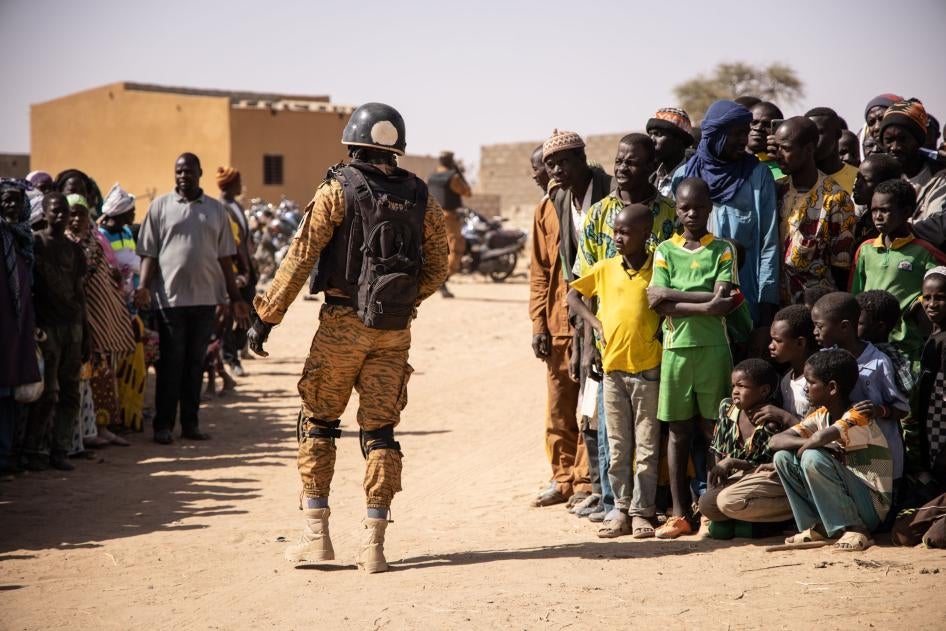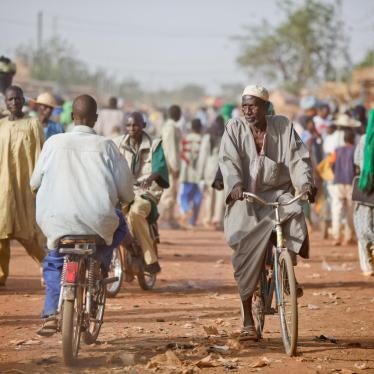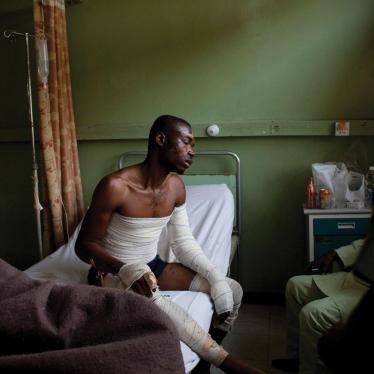(Nairobi) – African Union (AU) member countries should use their upcoming summit to commit to addressing human rights issues underlying armed conflict and political upheaval on the African continent, Human Rights Watch said today. The Extraordinary Summit on Terrorism and Unconstitutional Changes of Government will take place on May 25-28, 2022, in Malabo, Equatorial Guinea.
The AU summit is taking place within the context of five coups in Africa since 2021, and Islamist insurgencies in Cameroon, Central African Republic, Mozambique, Somalia, and the Sahel, as well as widespread impunity for human rights violations by government security forces. The summit is scheduled to begin on Africa Day, which commemorates the founding of the Organization of African Unity, the AU’s predecessor, in 1963. The summit is an opportunity for the continent’s leaders to address continuing political repression, entrenched impunity, disregard for constitutional term limits, and election rigging.
“The AU summit should follow up on its February pledges by analyzing the links between human rights abuses and insurgencies and coups in Africa,” said Carine Kaneza Nantulya, Africa advocacy director at Human Rights Watch. “African leaders cannot afford to avoid addressing how impunity for atrocities committed by their security forces is creating grievances that fuel recruitment by extremist groups.”
In the Sahel, responses by governments and their Western partners need to go beyond the security dimensions of the crisis and consider the underlying deep-rooted social and political factors, Human Rights Watch said. Over the past decade, the United Nations, Human Rights Watch, and other nongovernmental organizations have documented thousands of unlawful killings and other abuses of civilians and suspects by the security forces of Burkina Faso, Mali, and Niger during counterterrorism operations. Governments have yet to deliver justice to victims and their families.
Many atrocities appear to be in retaliation for the deaths of soldiers during attacks by armed Islamist groups. Leaders in Malabo should deliberate about building and strengthening rights-respecting counterterrorism operations with built-in human rights monitoring and reporting systems, and commit to strengthening judicial institutions to investigate, and fairly prosecute, alleged violations.
“The AU needs to recognize that government abuses are a key driver of endemic crisis that require bold approaches,” said Kaneza Nantulya. “Human rights ought to be firmly at the center of regional solutions for the Sahel and other crises.”
The AU should cooperate with the African Commission on Human and Peoples’ Rights (ACHPR), to increase the presence of human rights officers in African-led counterterrorism missions. Governments need to ensure that cooperation agreements on counterterrorism operations set out human rights standards, such as the UN Human Rights Due Diligence Policy.
The AU should call for meaningful and effective security sector reform efforts in conflict-affected countries and take concrete measures to improve security force compliance with international human rights and humanitarian law, and their progress on the protection of civilians. These measures should include establishing civilian oversight bodies and vetting mechanisms to remove members implicated in serious human rights abuses from security and intelligence services.
The members also need to address democratic deficits and issues around corruption, impunity, term limits, and the need to hold free and fair elections, which have undermined development and encouraged changes of government that deny citizens the right to choose their leaders.
In Sudan, since the October 2021 military coup, security forces have arbitrarily detained hundreds of protesters and forcibly disappeared scores of others as part of a broader clampdown on activists and civil society opponents of the coup. Security forces have targeted protesters, including children. AU leaders’ engagement with Sudanese leaders on resolving the crisis should fully consider demands by protesters and the broader civic community, such as ensuring systemic reforms, including within the security forces, prioritizing justice for past and recent abuses, and the establishment of civilian rule.
In Chad, the human rights situation, particularly the rights to freedom of assembly and expression, has worsened since the unexpected death of President Idriss Déby Itno in 2021, and the takeover by his son, Mahamat Idriss Déby Itno.
“The AU should urge military leaders in Chad and Sudan to end the killings, enforced disappearances, and arbitrary detention of protesters and activists,” Human Rights Watch said. The authorities should respond to citizens’ demands for ethical leadership, civilian rule, economic security, and demonstrate greater respect for the rights to freedom of expression, association, and assembly.
Almost 60 years ago, in establishing the Organization of African Unity, African leaders decided to anchor their vision of human dignity and freedom within a pan-African institution, now the African Union. As African leaders reflect on the many gains since 1963, they should pay close attention to and respond to emerging forms of state-sponsored repression: the use of mass surveillance equipment, hampering of humanitarian access, deliberate internet shutdowns and denial of access to information.
“The AU should urgently address the increasingly ruthless repression of dissent and political opposition by autocratic governments that is fueling political crises across Africa,” Kaneza Nantulya said. “The AU should take steps to reverse these trends that constitute serious reversals of hard-won progress on justice, accountability and the rule of law and act accordingly. If not, those who, like OAU founder Julius Nyerere, argue that the AU is a club of autocrats and not an institution of the African people, will be proved right.”
|
News Release
AU: Focus on Root Causes of Conflict, Political Instability
Summit Should Address Rights Abuses by Security Forces
Your tax deductible gift can help stop human rights violations and save lives around the world.
Region / Country
Most Viewed
-
November 25, 2019
A Dirty Investment

-
June 3, 2025
“They’re Ruining People’s Lives”

-
January 25, 2024
“We’re Dying Here”

-
November 14, 2024
“Hopeless, Starving, and Besieged”

-
February 19, 2018
“All We Want is Equality”





